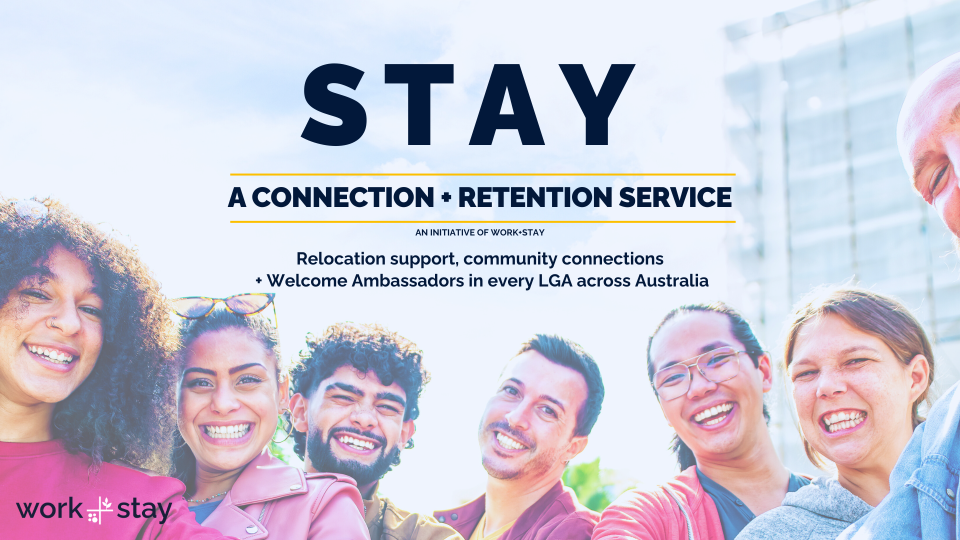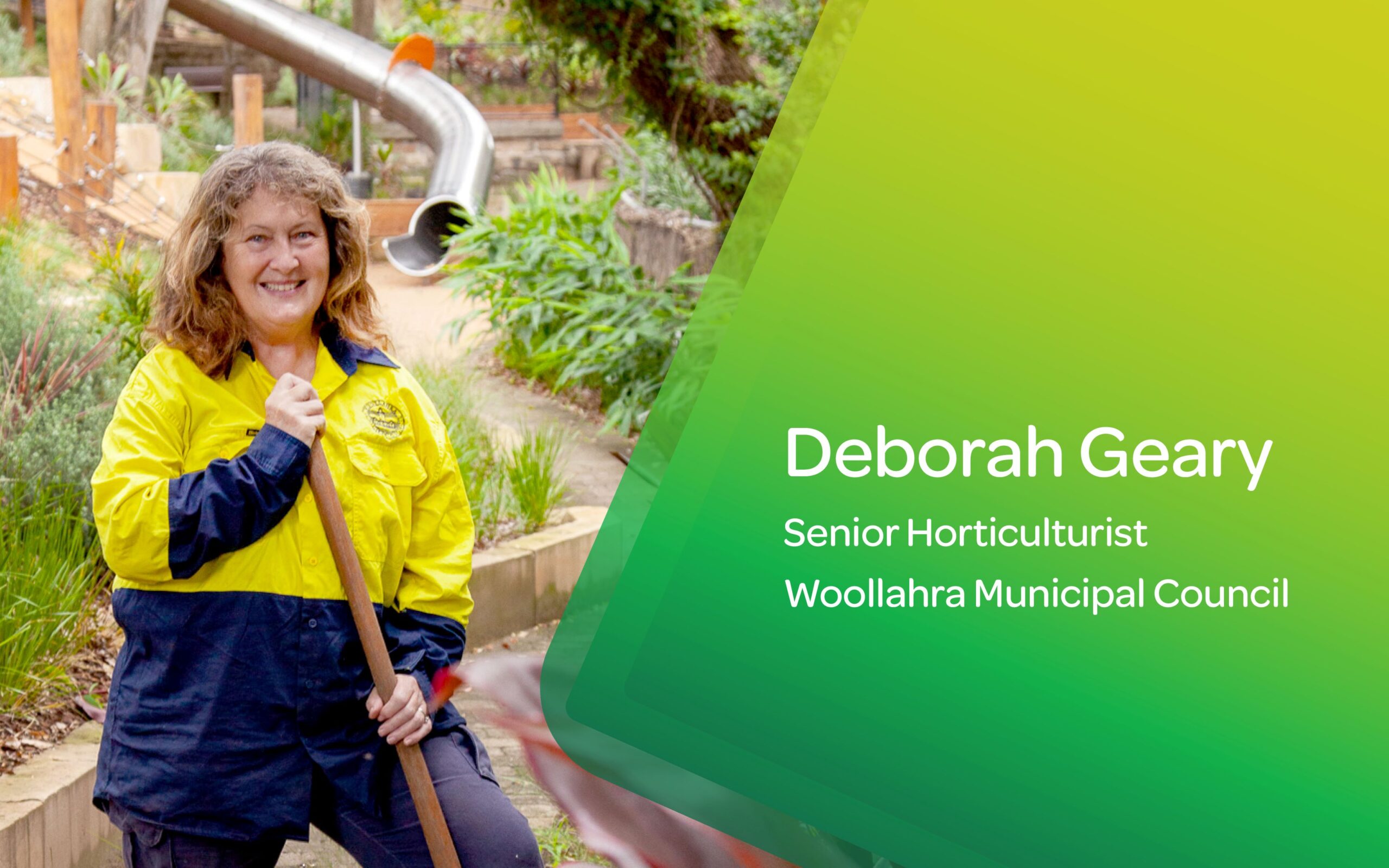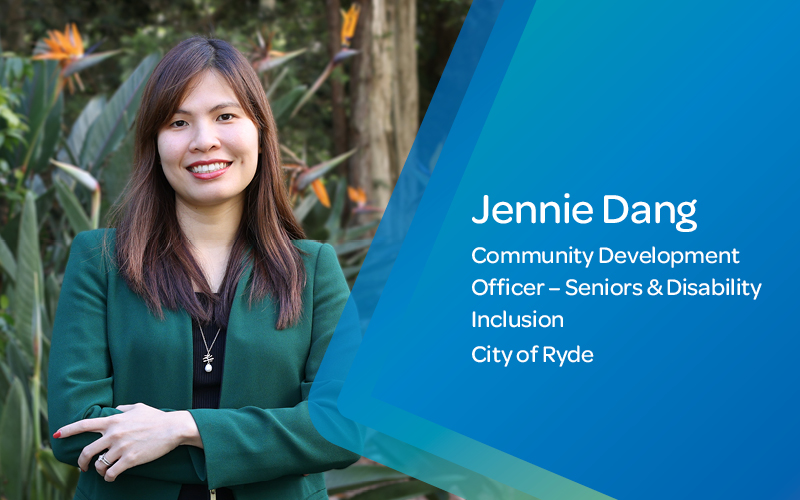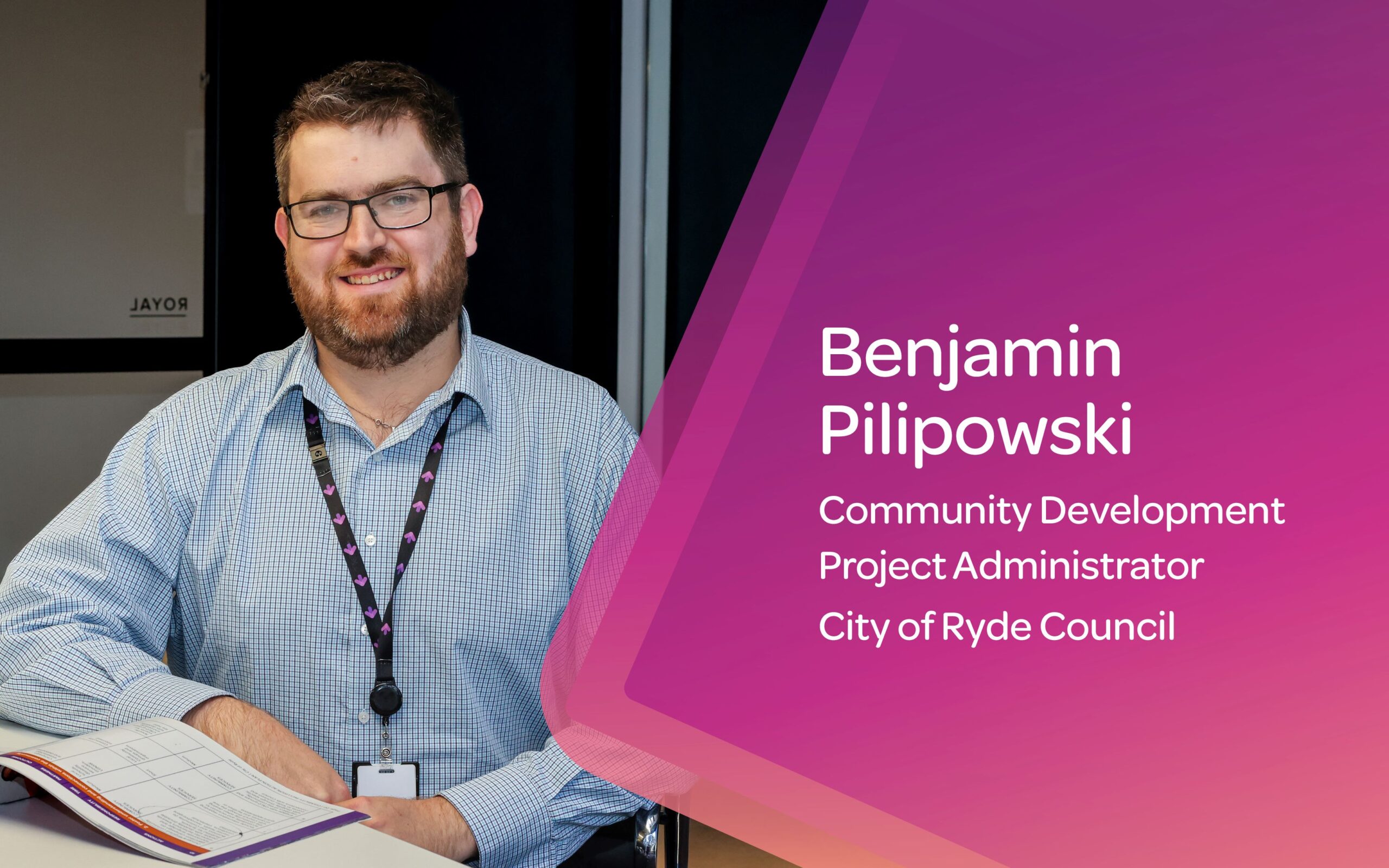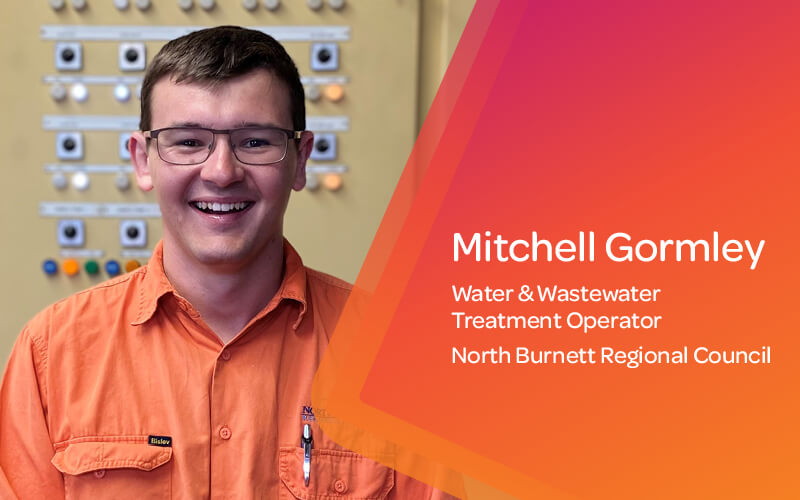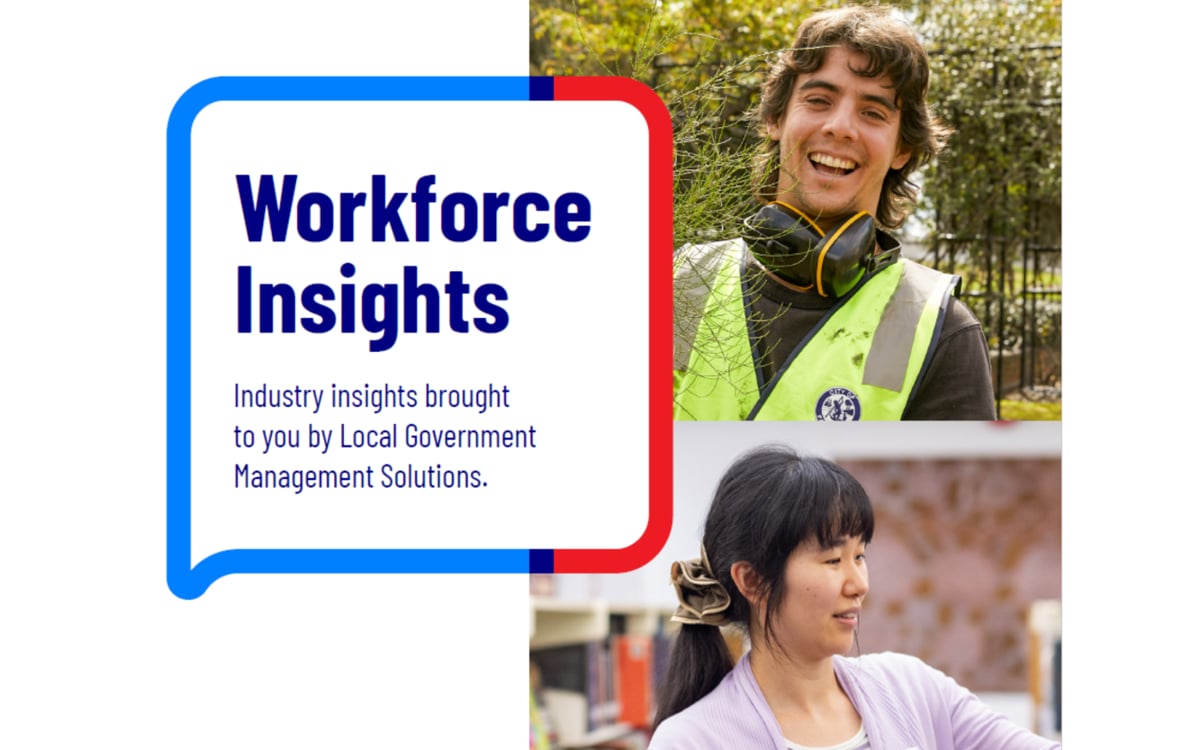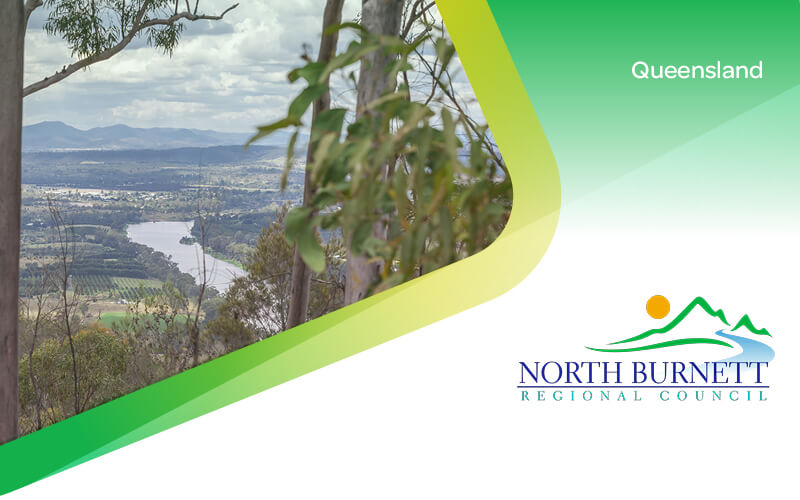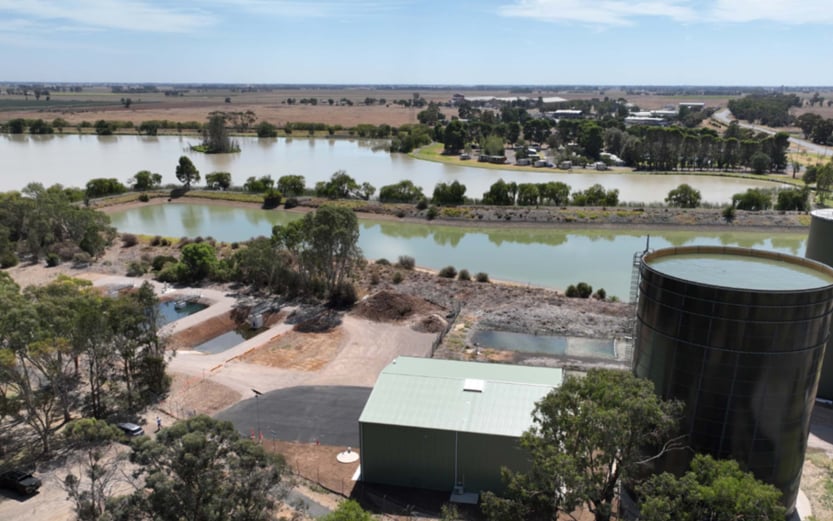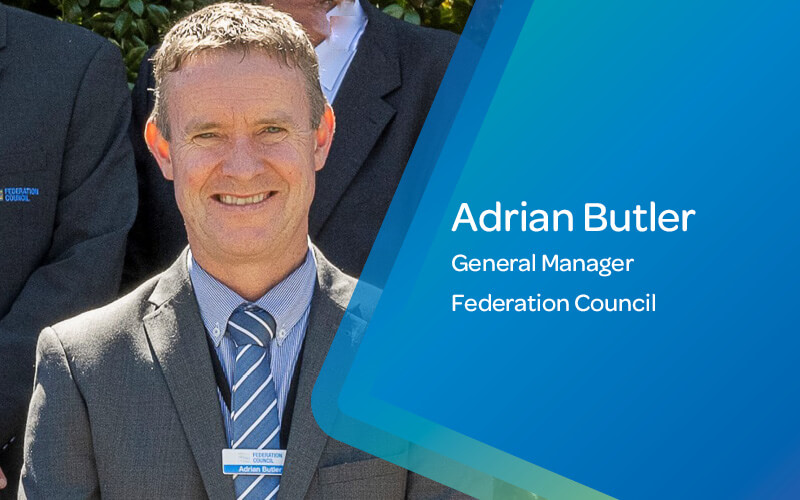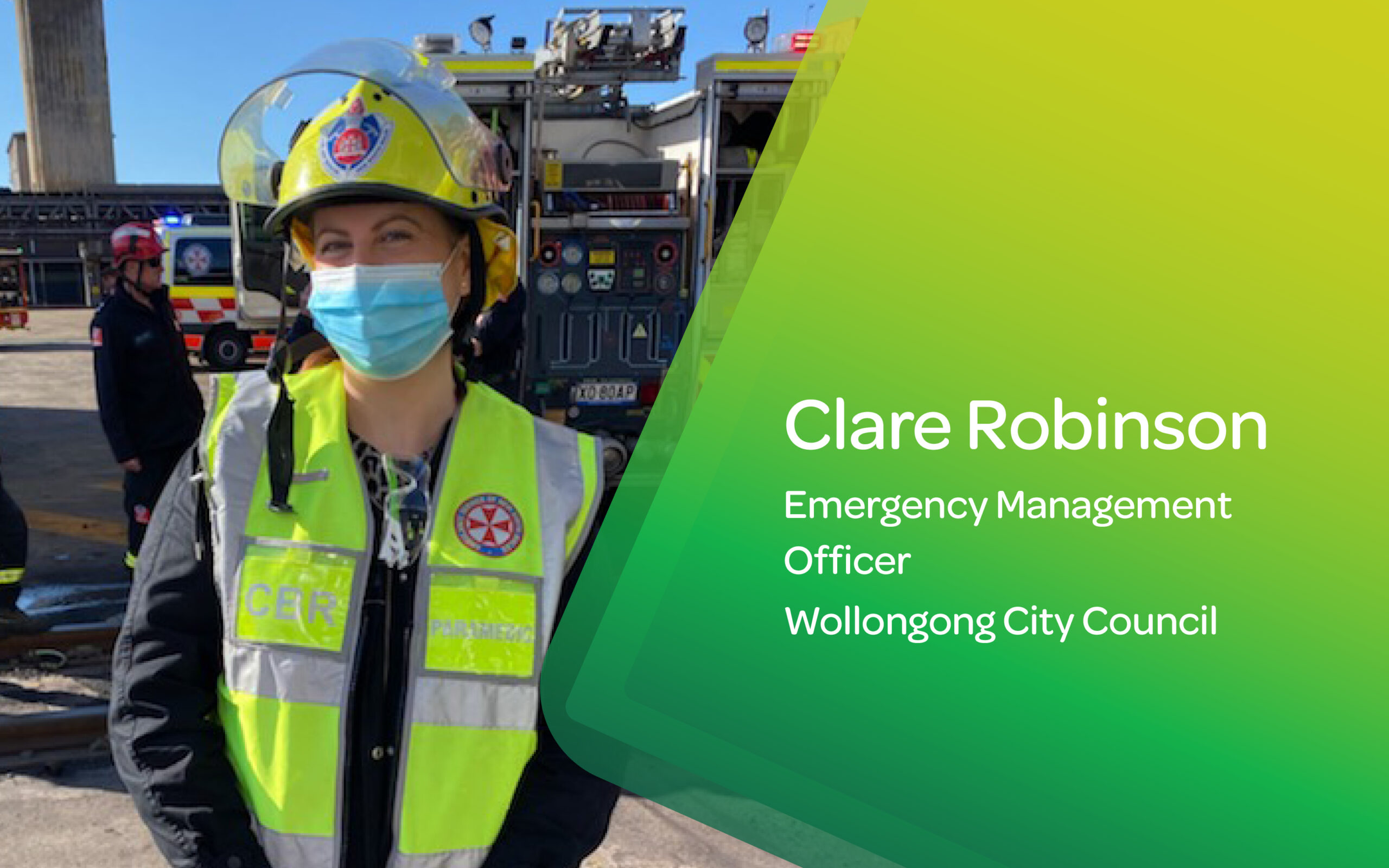
Q&A with Clare Robinson, Emergency Management Officer, City of Wollongong
With a career spanning over 20 years, Clare Robinson shares her journey from federal government roles to her current position in local government. She discusses the importance of emergency management, the challenges and rewards of her role, and offers insights for those considering a career in this vital field.
Q: Can you share a bit about your background and how you got into emergency management in local government?
A: I’ve been in local government for four years now. Before that, I worked at the federal level of government for nearly 17 years in various roles, including emergency reserves, emergency response, and emergency management project teams. These roles ultimately led me to where I am today.
I initially joined local government in a compliance role for twelve months. After achieving everything I could at the federal level, I felt it was time for a change. The compliance role came up, and I did that for a year before transitioning back into what I love – emergency management.
My original qualifications were in governance, and I also did some nursing. While at the Federal Government, I earned my Australasian Inter-service Incident Management System (AIIMS) Certification in my own time, and I attained an Advanced Diploma in Public Safety in 2023 after 3 years of study, supported by Wollongong City Council.
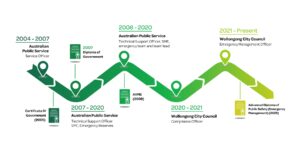
Q: What does your current role entail?
A: My main role is to facilitate the legislative requirements under the State Emergency Rescue Management Act. This involves providing executive support to the local rescue committee and the local emergency management committee (LEMC). These committees include all the combat agencies and functional areas involved in emergency management, including Police, NSW State Emergency Services, Rural Fire Service, NSW Health, and the Education Services Functional Area, amongst many others.
My days are hugely varied, ranging from project management, to community engagement on behalf of the LEMC and City of Wollongong. For example, I recently participated in bushfire readiness community forums with local parliament members, NSW Police, NSW Rural Fire Service, Fire and Rescue NSW and National Parks and Wildlife Services. We provided expertise to help the community prepare for the bushfire season. I integrate with various council teams, such as communications, city works, flood engineers, environmental, climate change, and community engagement teams, to ensure they consider Emergency Management principles in their work.
I also work with community groups, such as those caring for people with chronic illnesses, to discuss and promote Emergency Preparedness. Last year, I had the privilege of supporting the EMBER (Emergency Management Backpack Evacuation Resource) project for the Flagstaff Group, which provides aid and services for people living with disabilities and their carers.
The EMBER project was initiated after the Shoalhaven bushfires, when some of Flagstaff’s participants were left stranded without essential resources, such as cue cards for non-verbal residents and medications. EMBER compiles valuable and accessible resources, including emergency backpacks, an emergency planning app, a communication board app, and checklists specifically designed to support individuals with disabilities.
Funded by Resilience NSW Reconstruction Authority, the EMBER project also provides tools for emergency personnel to facilitate communication with non-verbal individuals during emergencies, such as communication boards and a non-verbal communication app.
Q: How does your role change during an emergency?
A: During an emergency, Local Government has a large role to play. My role is to provide executive services to the local emergency operations controller, coordinating staff, resources, situation reports, and debriefs.
I’ve been involved in responses to various natural disasters including bushfires, landslides, and flash flooding. Other emergencies include the COVID-19 Pandemic, supporting NSW Health in their response.
Q: What does success look like in your role?
A: During non-emergency times, success is about completing projects that contribute to our prevention, preparedness, response and recover capabilities.
During an emergency, success to me means providing comprehensive support to the lead agency and making a significant positive impact on the community. Knowing that my efforts have helped protect and support my community during an emergency is incredibly rewarding. There’s no other role that offers such a profound sense of accomplishment. You are the genuine boots on the ground, the first line of response in local government.
Q: What future trends and challenges do you see in emergency management?
A: One of the biggest challenges is the varied perceptions of what emergency management entails. What I can tell you for certain is that emergency management is not limited to responding to an emergency; it’s far more holistic than that. It’s evolving into a distinct profession that covers the full spectrum of prevention, preparedness, response, and recovery across all community elements – , social, economic, and environmental. Defining the necessary skills and qualifications for this role is crucial as it continues to develop.
Q: What skills and behaviours make you successful in your role?
A: A dedication to community service is paramount. I have a dedication to service within me. I have been in service roles my whole career. Everything we do is for our community. Understanding the central role local government plays within its community and how your role contributes to that is essential. You also need a good sense of humour and resilience!
Q: What would you say to someone considering a career in emergency management in local government?
A: If you’re looking to make a real, tangible difference, especially during the most challenging times, then emergency management is the right career for you. It’s a rewarding field where your efforts directly contribute to the health and safety of your community.
Click here to learn more about a local government career in emergency management and community resilience. Discover how you can make a real, tangible difference when your community needs it most, and experience the profound sense of accomplishment that comes from serving others in their time of need.


